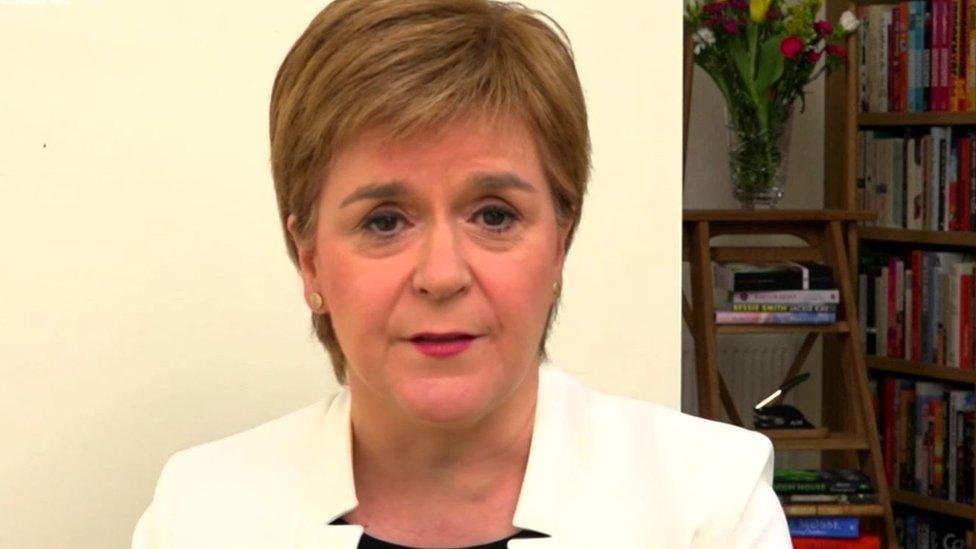How Scotland's election could affect Northern Ireland's future
- Published
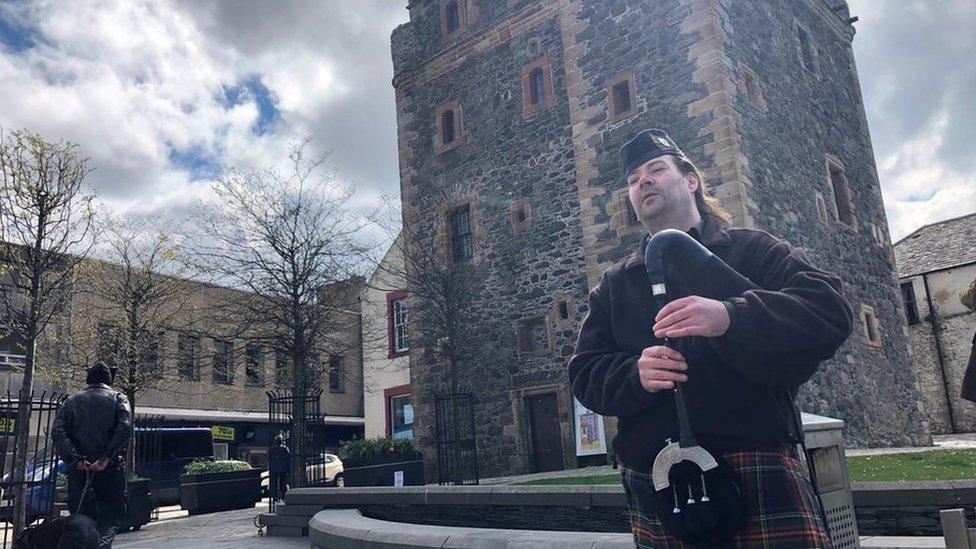
Stranraer is geographically closer to Belfast than Glasgow
There is much which divides politicians in Northern Ireland but they share an interest in Scottish constitutional affairs.
So when the votes are being counted after the Scottish Parliament election on 6 May, there will be many Stormont politicians glued to TV sets and smartphones on the other side of the Irish Sea.
The results will not deliver a direct judgement on Scottish independence, but they may indicate the direction of travel.
One way or another, the outcome will send a political message to other parts of the United Kingdom.
If a chain is only as strong as the weakest link, this will be seen, by some, as a stress test for the union.
In Northern Ireland, Sinn Féin has recently stepped up its campaign for a vote on Irish unification.
If Scotland is allowed another vote on its constitutional future in the next few years, the calls from Sinn Féin will become louder.
On the other hand, if the Scottish National Party (SNP) and other pro-independence parties have a poor election, unionists will say questions about the future of the union have been settled.
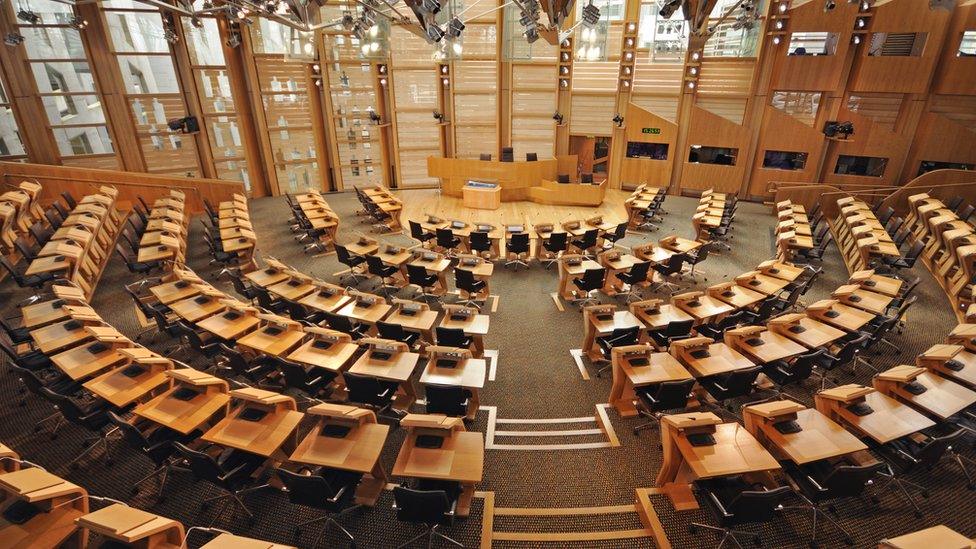
All 129 seats in the Scottish Parliament are up for grabs
To sample the pre-election mood on the west coast of Scotland, I spent a day in Stranraer.
Geographically, it is much closer to Belfast than Glasgow and many of its inhabitants are familiar with Stormont politics.
"If we go, you go," an independence supporter told me after spotting my BBC Northern Ireland microphone.
"If we jump first, you'll be next."
Matt Tomlinson, a busker who plays electronic bagpipes in the centre of Stranraer, is hoping the election edges Scotland closer to the UK exit door.
"I just think that geographically, politically, culturally that Scotland is an entirely different entity to the UK," he said.
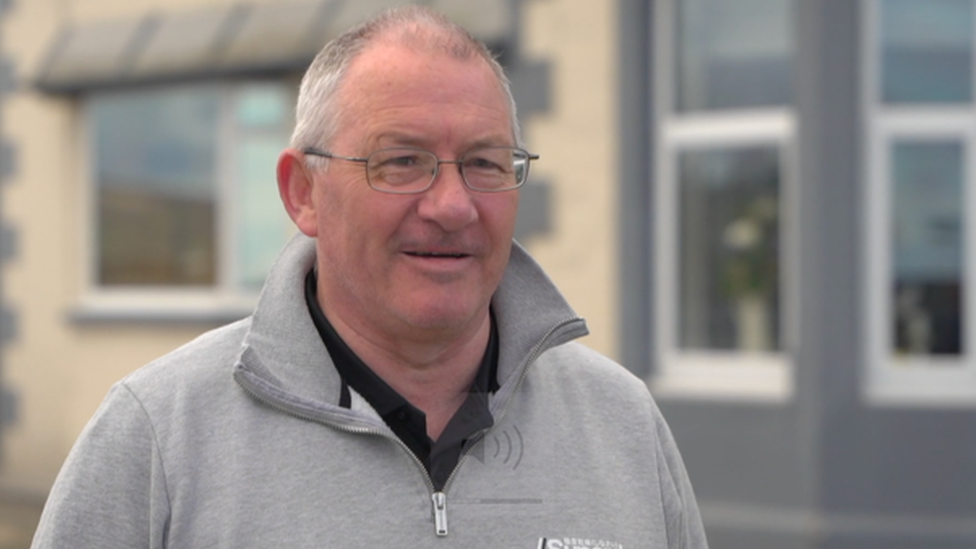
Hotel owner Harry McMillan says he wants to be part of the union
A short distance away, local hotel owner Hammy McMillan disagrees. He thinks the success of the Covid vaccine roll-out demonstrates the strength of the union.
"I personally feel that the Scottish Parliament is just an extra piece of bureaucracy and costs the country far too much money. I want to be part of the union and to stay there."
Bridal shop owner Amanda McFern is more concerned about economics than politics.
"I think there are more important things to be worrying about at the moment like getting back to a bit of normality," she said, through her mask.
"The election is probably the last thing on my mind at the current moment/"
Voters on the street raised concerns about the pandemic, NHS funding and the state of the A77 road between Stranraer and Ayr.
There was also some resentment expressed about the renewed push for independence given that Scotland voted to remain in the UK in 2014.
"It's time to stop fighting old battles" came a cry from an opponent of independence.

Bridal shop owner, Amanda McFern says the election is probably the last thing on her mind
Something else which Scotland and Northern Ireland have in common is that a majority of people voted against leaving the European Union in 2016, even though the overall UK vote was in favour.
Brexit has fuelled nationalist demands to break away from the UK.
An opinion poll recently commissioned by BBC NI's Spotlight programme suggested a majority of people on both sides of the Irish border believe Northern Ireland will have left the UK within 25 years.
The same poll suggested that if Scotland voted for independence in the next five years, most people think a united Ireland will become more likely.
Polls are polls. Real votes will counted across Scotland following the 6 May election.
Those are the results which matter most.
The only safe prediction is that the outcome will analysed far and wide, from Dundee to Donaghadee and from Stranraer to Strabane.
Related topics
- Published7 May 2021
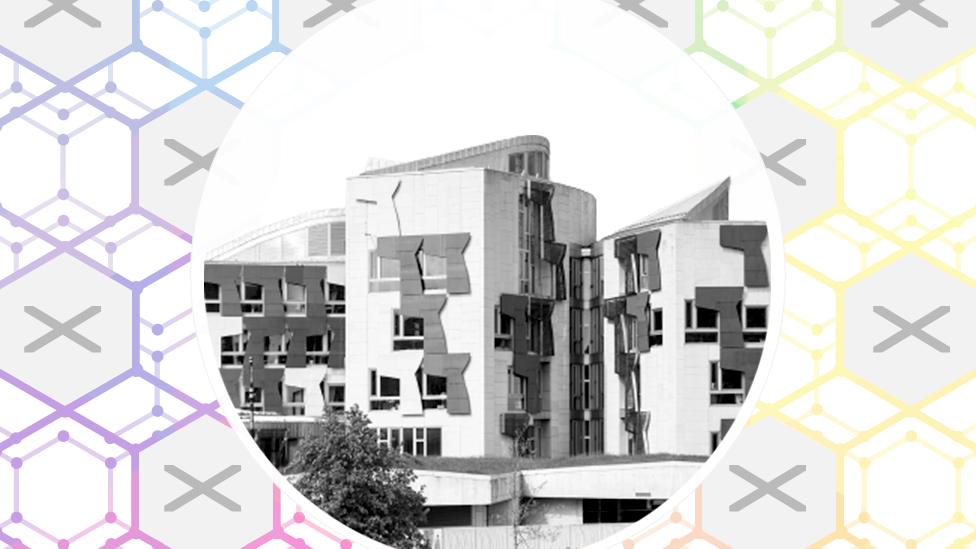
- Published23 April 2021
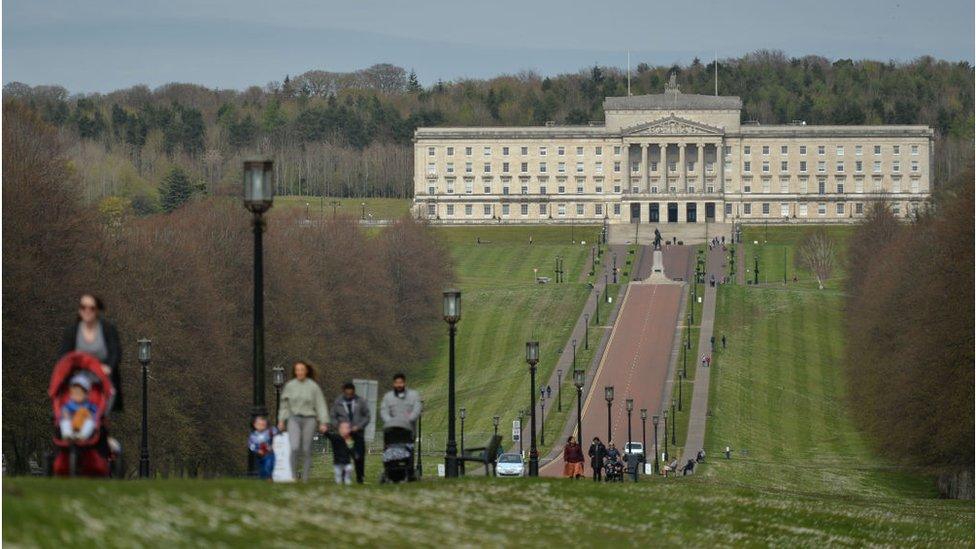
- Published20 April 2021
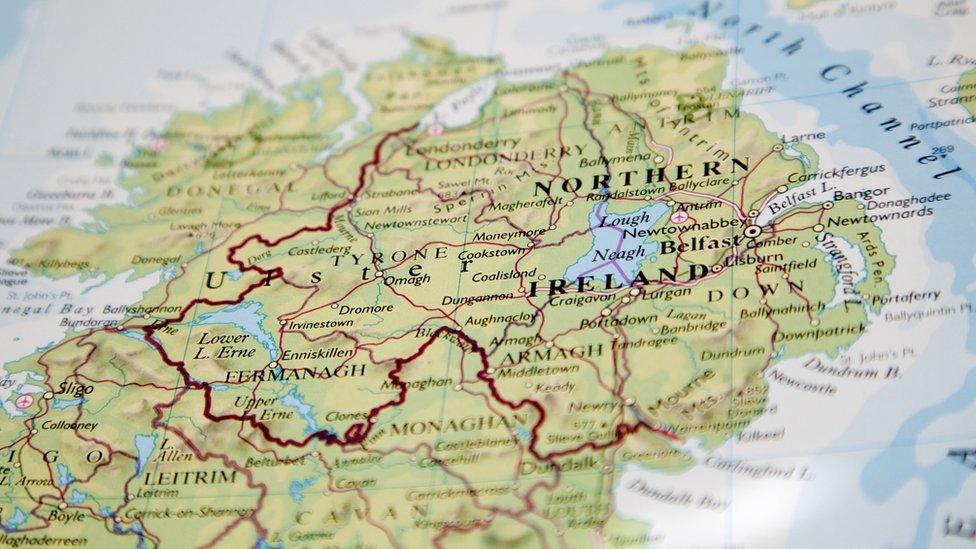
- Published25 April 2021
